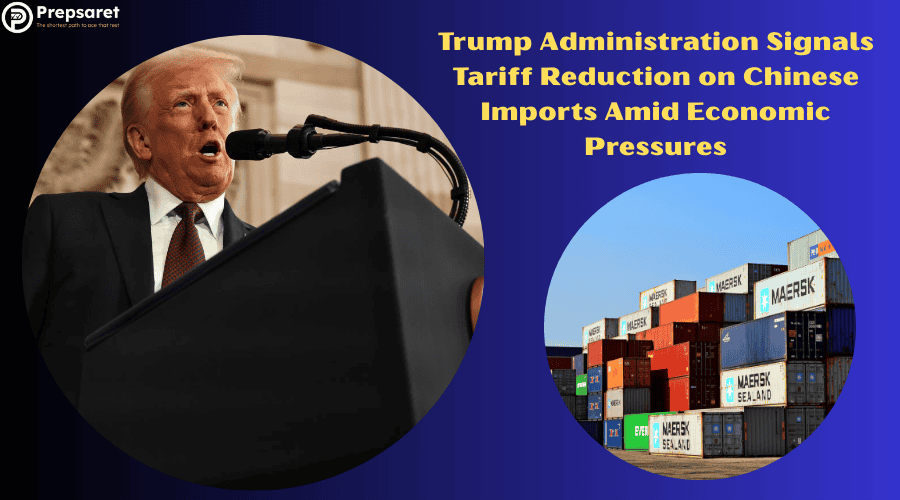Key Points:
- Trump suggests China tariffs will be “substantially” lowered.
- U.S. and China expected to engage in softer trade negotiations.
- Fed Chair Powell will remain, despite Trump’s past criticism.
President Donald Trump announced Tuesday that the steep tariffs imposed on Chinese goods could soon be significantly reduced, marking a potential turning point in the prolonged U.S.-China trade dispute. Speaking in the Oval Office, Trump stated the current 145% tariff rate on many Chinese imports is “very high” and “will come down substantially, but it won’t be zero.”
The announcement comes amid growing concerns about the global economic impact of the trade war and recent market volatility. Trump indicated a more conciliatory tone toward Beijing, stating, “We’re going to be very nice, and they’re going to be very nice, and we’ll see what happens,” suggesting an openness to renewed negotiations.
Earlier in the day, Treasury Secretary Scott Bessent echoed this sentiment, telling investors the current trade standoff is “not sustainable,” and hinting at a broader de-escalation strategy. The shift in rhetoric follows mounting pressure from business leaders and lawmakers urging the administration to ease trade tensions that have disrupted global supply chains and contributed to inflation.
Related Coverage:
- Hong Kong suspends postal service to the US after Trump’s tariff hikes
- China Warns Against Trade Deals That Undermine Its Interests
- China’s economy grew by 5.4% in first quarter of 2025 but US tariff shock looms large
Despite past threats and tit-for-tat tariffs from both sides, analysts say the White House may now be seeking a path to a negotiated settlement. China has responded by raising its tariffs on U.S. goods to 125%, while the U.S. has imposed layered duties targeting fentanyl-related products and specific Chinese sectors.
In the same press briefing, Trump also addressed speculation about his relationship with Federal Reserve Chair Jerome Powell, confirming that he has “no intention” of removing him. Trump, who has frequently criticized Powell over interest rate policy, noted he would like to see a “more active” stance on rate cuts to support economic growth.
Market reactions to Trump’s comments were largely positive. Major indices rose in afternoon trading, buoyed by investor optimism over potential relief from trade restrictions.
While specifics of any trade agreement remain unclear, the softened tone from both the White House and the Treasury Department suggests a possible easing of the economic conflict that has dominated U.S.-China relations for years. Further talks are expected to follow in the coming weeks, with economic observers closely watching for concrete steps toward compromise.

